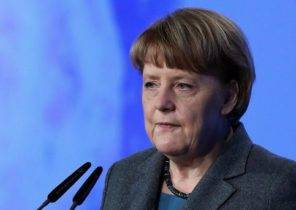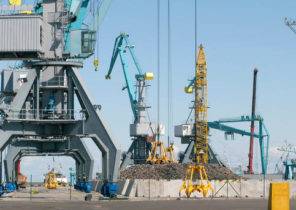Cambridge — When covid-19 spread from China to Europe, and then in the United States, the countries affected by the pandemic, began feverishly to fight for the delivery of medical supplies: masks, fans, protective clothing. Often they had to apply for it to China.
At the beginning of the crisis China has become the world’s largest supplier of key goods, it accounted for half of all European and American imports of personal protective equipment. “China has laid the Foundation for his subsequent years of market domination, remedies and medical supplies,” reads a recent report from The New York Times.
When China first turned to global markets, he had the advantage of a virtually limitless supply of cheap labor. But, as all now recognize, the manufacturing power of China is not a result of uncontrolled market forces.
In accordance with the policy of “Made in China 2025”, the government of China aimed at the serious increase in the share of its producers in the global supply of medical equipment. In the message The New York Times explains how the government provided cheap land to Chinese factories, lent subsidized loans, instructed state companies to produce key materials and stimulated the internal supply chain, requiring hospitals and firms to use local products.
For example, Sichuan, the second largest province of China, halved the number of categories that are allowed to import medical equipment. Most hospitals were required to get everything from local sources, and only the leading hospitals were entitled to delivery from abroad.
The Western media is now replete with messages about “China’s desire to dominate the important gears of the global industrial machine” — a quote from the same The New York Times. The role of China in the world economy is increasingly described terms reminiscent not of doux commerce, and Imperial aggression. The increasing authoritarianism of Chinese President XI Jinping and escalating trade conflicts with the United States also seems to play up this narrative.
The strategic and geopolitical tensions between the US and China is a reality. It is based on the growing economic and military power of China and the unwillingness of US authorities to acknowledge the inevitable reality of a multipolar world. But we should not let the economy become a hostage of geopolitics or, even worse, to warm and strengthen strategic competition.
For starters, we must recognize that combined, state-controlled economic model has always been at the heart of China’s economic success. If half of the economic miracle of China is driven by its transition to a market economy since the late 1970s, then the other half is the result of active government policies to protect the old economic structures — such as state-owned enterprises — in the period when many industrial policy instruments created a new industry.
Of course, the main benefit from this got the Chinese who survived stremitelnye in the history of the rise of living standards. But this was achieved not at the expense of the rest of the world. It is the policy of growth, which today causes irritation in the other countries, is the cause of turning China into a major market for Western exporters and investors.
But unless Chinese industrial policy — for example, goods of medical purpose — it is not unfair to foreign competitors?
We have to exercise caution before making such a verdict. The standard rationale for industrial policy is that new industries may cause side learning effects, technological effects and bring other social benefits that makes desirable the support of the state. But many Western economists believe that the state is not very much part of the correct selection of sectors worthy of support, and that the bulk of the costs for this borne by consumers and taxpayers in the country. In other words, if Chinese industrial policy were incorrect and were carried out in the wrong direction, the result would hurt China’s own economy.
By the same logic, if the Chinese policy of de facto focused on actions in which the social benefits exceed benefits to private individuals, providing improved economic performance, then it is not clear to complain to foreigners. This is what economists call a “correction of deficiencies of the market.” From the point of view of an external observer, to obstruct the Chinese government in implementing such policies that still hinder the competitor to release their markets.
This is especially true when by “external” refers to the rest of the world, as in the case of climate change. Chinese subsidies for solar panels and wind turbines has led to a reduction in the cost of renewable energy — and this is a huge benefit for the rest of the world.
The economic side of industrial policy can get complicated where there are monopolies and companies dominating in the market. In the industrial policy can be reasonable restrictions, if it gives thus the opportunity to dominate the market at the expense of the rest of the world.
But Chinese manufacturers rarely accused of inflating prices, which is a symptom of market domination. Often the content of the complaint is the opposite. So these considerations are probably more relevant to American and European firms, often playing a leading role in high-tech markets.
None of this is an argument in favour of other countries sitting idly by while China captures the increasingly challenging manufacturing industry. The US, for example, have a long history of successful industrial policies, particularly in the field of defense technology. Currently, the political spectrum of the US, there is a common opinion that the country needs a clearer industrial policy, focused on good jobs, innovation and green economy. The bill put forward by the leader of the democratic faction of the U.S. Senate Chuck Schumer, involves the allocation of new technology $ 100 billion over the next five years.
A new impetus for industrial policy in the US and Europe is largely motivated by the presumed Chinese “threat.” But economic considerations indicate that this is the wrong emphasis. Needs and tools are located in the sphere of domestic politics. The goal should be to build a more productive, more inclusive economy at home, and not just to beat China or try to undermine its economic progress.







